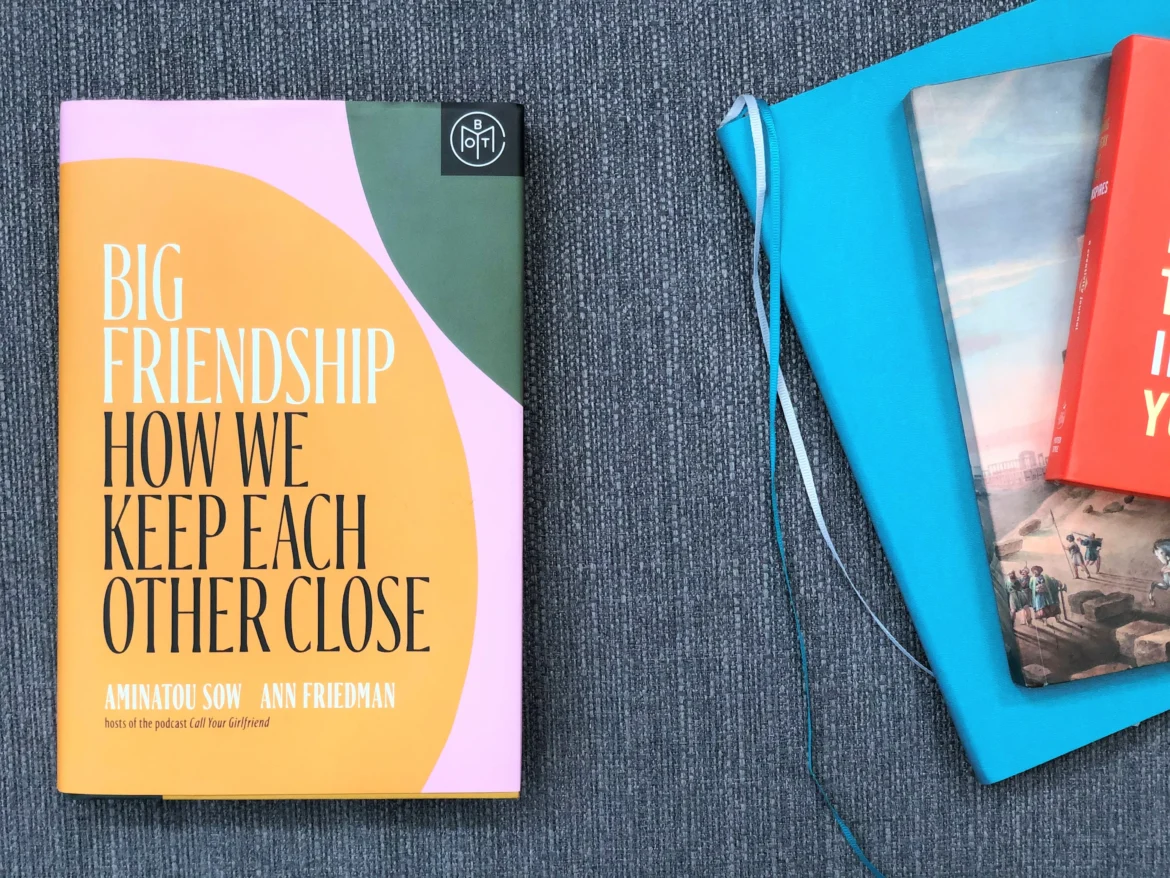I will not claim that during the pandemic cloud we are all collectively suffering under has a silver lining. But things would have been gloomier were it not the presence of some good friends. Whether one is living with a family or alone, a conversation with a friend has often provided much-needed relief. It gave me the opportunity and time to reinvest relationships that had fallen by the wayside in the business of living. And post-pandemic I already feel the need to put in more work.
Rarely as celebrated as other filial or romantic relationships adult platonic relationships form a huge part of our well-being. And like any other relationship in our lives, they need time and care.
Aminatou Sow and Ann Friedman, besties over a decade and hosts of the famous feminist podcast Call Your Girlfriend, wrote Big Friendship to share lessons from their own friendship. A relationship that sparked over shared interest on Gossip Girl, spanned years and geographies and almost didn’t survive, if not for certain realizations on the way.
“Words like “best friend” of “BFF” don’t capture the adult emotional work we’ve put into this relationship” — Aminatou Sow & Ann Friedman, Big Friendship
Photo by Harli Marten on Unsplash
‘Big Friendship’ Is Really About Them
Triggered by the ups and downs of their own relationship, Sow and Friedman collaborated to understand what goes behind the scenes of a long-lasting friendship. Told in a single narrative thread of “we”, it’s their voice on their journey together as friends.
A large part of Big Friendship is autobiographical–a non-romantic love story, if you will. We get details on how they met, their instant chemistry (purely platonic, a fact which is beaten over its head several times), their personal ambitions, how they drifted apart and how they found their way back to each other.
If it sounds less informative and more self-indulgent, that is because it is. Sow and Friedman run a successful podcast, are the brains behind Shine Theory (which is extensively covered in its own chapter) and host a branded dessert girlfriend-getaway. The constant references to their work seem both unavoidable, though slightly self-promotional. The book can sometimes feel like another extension of their brand.
Conversely, for fans of the podcast, this is a treat. The writers go into details of their respective childhoods, decisions that drove their career choices, challenges they faced at work and their journey towards writing this book. It’s trove of personal inspiring stories for their podcast subscribers.
But Wait, Not All Is Fluff
Photo by Bewakoof.com Official on Unsplash
When not charting the life of its writers, Big Friendship does a decent job of explaining the concept of grown-up friendships.
The book briefly explores the history of adult platonic relationships and how the Western world has set the standards for friendships. In early 18th and 19th century conservative marriages, women’s domestic spheres differed from men’s more worldly-view, paving a way for stronger female friendships. Women found the freedom to be more honest and forthcoming with each other than with their own husbands.
The rise of female emancipation in early 20th century improved the dynamics of male/female friendships. And the constructs of platonic friendships continue to change as gender roles evolved from the 20th to 21st century.
The book discusses that like family, ‘big friendships’ are built on deep bonding and such friends are essentially one’s chosen family.
“First, friends who are attached have a desire to see a lot of each other and know what’s going on in each other’s lives. Second, the friends provide a secure base for each other — meaning the friendship allows them to go out and explore other friendships, romantic relationships, new jobs, anything that might feel scary but ultimately positive, because they can look over their shoulder and know their friend is there for them. And third, they offer each other a safe harbor. When things go wrong for one friend, the other loyally and dependably steps up to offer support.”
― Aminatou Sow, Big Friendship
Friendships suffer when life gets in the way, and we have all been there. When dealing with life-changing events like moving to a new city, or having a child or getting a new job, the first thing to go is the time we give to our friends, because we expect them to understand!
Photo by Roman Kraft on Unsplash
The writers talk about the need to resist that impulse and treat friendship at par with other relationships. They introduce the concept of making the ‘stretch’ to adapt to changes.
Friendships fail when neither party makes the stretch or one makes more than the other. Sow and Friedman’s friendship dealt with its own stretches–living in different cities, dealing with chronic illness and the big elephant in the room, the race issue. Some stretches were easier to make than the others.
“A healthy friendship stretches in both directions. When you’re stretching, you’re both making an effort to figure out how to adapt to your differences …. The stretch doesn’t have to feel equal….but over time, the give has to even out the take…” ― Aminatou Sow, Big Friendship
Neither women are sociologists, and a large part of their messaging is anecdotal. They often refer to research to uphold their arguments, but this second-hand relaying of information only goes so far.
The result being that Big Friendship sounds less like a 250 pages book on friendship but more like a really long podcast about two friends talking about life. It’s warm, funny, open and somewhere in between, there are words of wisdom.


